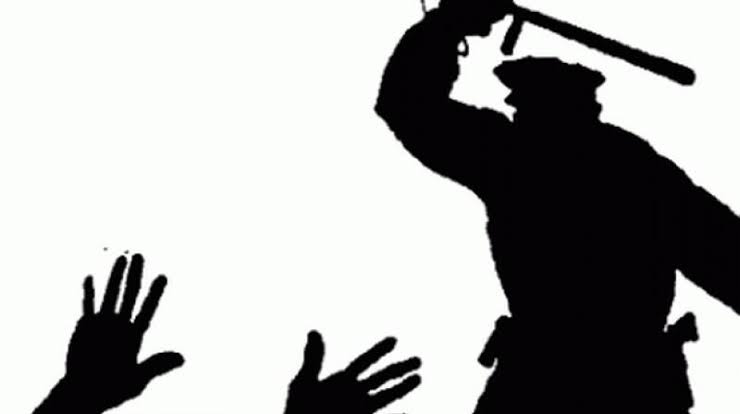Table of Contents
D.K BASU V. STATE OF WEST BENGAL: CASE COMMENT
COURT – BEFORE THE SUPREME COURT OF INDIA
DECIDED ON -18.12.1996
BENCH: KULDIP SINGH AND A.S.ANAND JJ
The case pertained to an increased number of torture and deaths in detention facilities. This is one of the landmark Supreme Court judgements and India has some of the claims about arresting someone.
ISSUES
The issues which were raised are:
- Are the actions undertaken by policemen arbitrary?
- Is there any need to specify some guidelines to make an arrest?
FACTS
DK Basu, Chairman of the West Bengal Legal Aid Services Group, sent a letter to the Chief Justice of India to request attention to certain news reports of police jails and deaths.
He asked the authorities to treat it as a written complaint in the “public interest” category. Considering the relevance of the matter raised in the letter, the letter is considered a written petition and a notice was sent to the defendant in West Bengal.
Considering this letter, Mr. Alok Kumar Johri wrote to another chief justice at the police station detention facility, raising concerns over the death of Alkhah’s Philharana Mahesh Bihari. It was also considered a petition and is Listed with Basu’s petition.
Courts issued orders to all state governments and issued notices to the Commission on Humanitarian Affairs within two months asking for appropriate recommendations. Upon notice, all states, including West Bengal, Orissa, Himachal Pradesh, Haryana, Assam, Meghalaya, Maharashtra, Tamil Nadu and Manipur, have filed statements.
To help the court solve this problem, A.M. Dr. Singhvi who was one of the most senior advocates then, was appointed as Amicus Curiae.
CONTENTIONS OF PETITIONER
The petition argued that the need to prevent physical and mental suffering in the four walls of the police station and detained rooms or raped or physically attacked by police while in custody extent of the trauma experienced is beyond the scope of the law.
The petitioner also insisted that a civilized country should be built and some important steps should be taken to eliminate it.
CONTENTIONS OF RESPONDENT
The counsel appearing for different states and Dr. A.M.Singhvi, presented the case and contented that “everything was well” within their respective states, presented above their respective beliefs and rendered useful assistance to this Court in examining various facets of the issue and made certain suggestions for formulation of guidelines by this court to reduce, if not prevent, custodial violence and kith and kin of those who die in custody on account of torture.
To defend this major fall out of the administrative wing, the State of West Bengal made an attempt to convey that there we no deaths in lock-ups and even if there were any, then an inquiry must be going on whosoever has done it.
OBSERVATION
The court noted that the main purpose of certain laws and constitutional provisions was to protect people from all forms of torture, assault and cruel treatment. Basic human rights or the right to freedom and dignity should not deprive anyone of detainees, prisoners, convicted or tried persons. Therefore, the court ruled that the basic rights stipulated in Articles 21(1) and 22(2) must be protected, and the law cannot deprive detainees. The court also questioned the credibility of managing the criminal system.
JUDGEMENT
KULDIP SINGH and A.S. ANAND JJ, found it very important to improve structural transparency, and the court decided to adopt an effective mechanism to record and notify all detention and arrest cases. The court issued several guidelines/suggestions to protect prisoners and prisoners. The instructions are:
- The arrested person has the right to see his own lawyer.
- The arrested person is entitled to a physical examination every 48 hours.
- The arrested person must be provided to the Magistrate within 24 hours.
- The arrester must inform the arrested relatives.
- During the arrest, a memorandum must be prepared.
- Notes and other related documents should be sent to the Magistrate.
- Police control rooms should be installed in all areas, and information about prisoners and guardians should be communicated to all areas.
- Information about the arrest must be entered in the diary.
- The arrester is required to carry a badge with the nameplate at the time of arrest.
- The place and time of the arrest must be notified by the arrester’s to the friend or relative of the person arrested.
- The person arrested must be informed that someone has the right to notify him of the arrest and proceedings on his behalf.
PERSONAL COMMENT
I think effective mechanisms are needed to manage the criminal system that existed in countries like India before this incident. The case has evolved into a groundbreaking event because Bench has issued guidelines to protect prisoners. The state is obliged to protect citizens accused of crime or ordinary innocent people.The law cannot be biased in that way, and it cannot deny basic rights such as the right to freedom, the dignity of those detained by the police.
In addition, torture and brutal attitudes adopted by the police when dealing with arrested people require significant changes. In this case, the Supreme Court must intervene, and the judge’s decision was absolutely appropriate and fair.
Author: Anubhuti Agrawal,
Jagran Lakecity University,Bhopal

